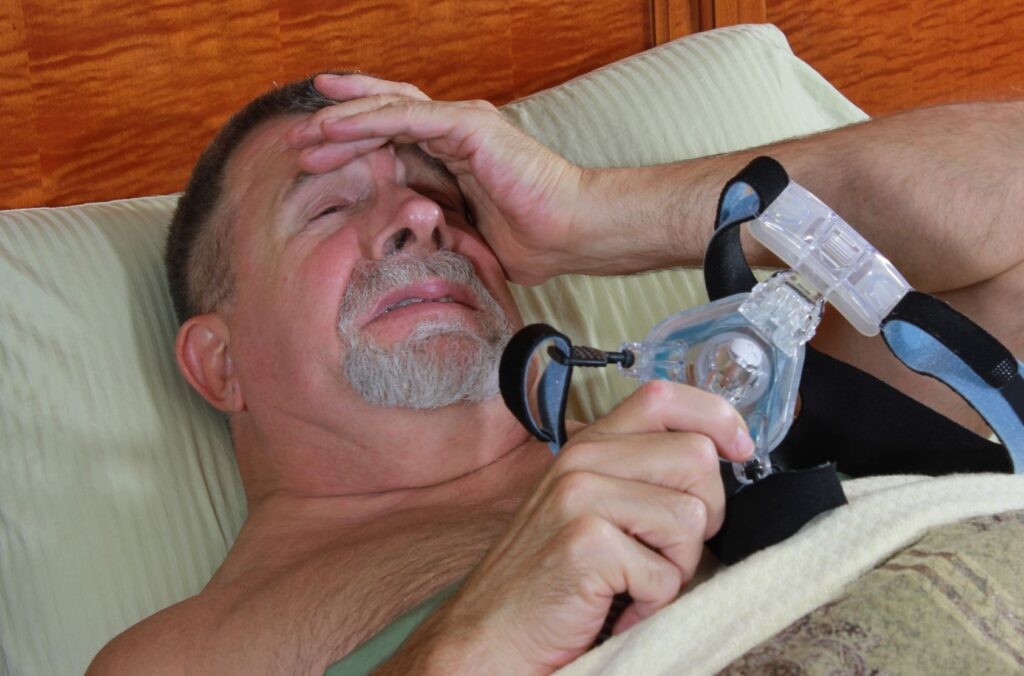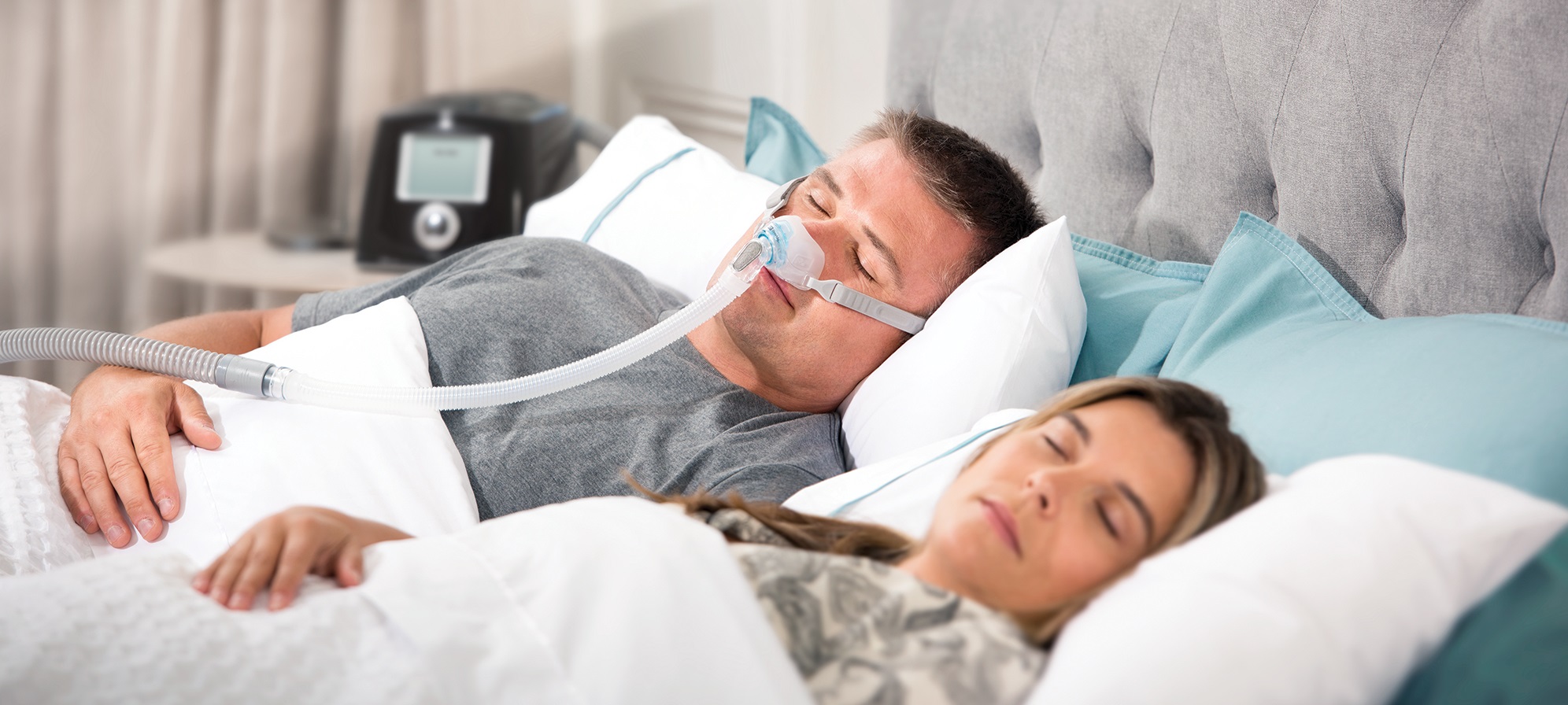Sleep apnea affects many people worldwide and is one of the most common sleep disorders out there. And while it’s so common, many people are unfamiliar with exactly how sleep apnea can affect your daily life.
In this article, we’re exploring the different ways sleep apnea can disrupt and affect your daily life. We’ll also touch on the different types of sleep apnea, how to prevent and reduce the risk of sleep apnea, and some treatment options offered by Air Liquide Healthcare for those that suffer from the condition.
So, let’s get started with the first way sleep apnea affects your daily life, which is:
Weight Gain
One of the surprising side effects of sleep apnea is weight gain. When you have an irregular or disrupted sleep schedule, it messes up your entire system. Those that don’t sleep at the right times are at a higher risk of gaining weight because their body slows down their metabolism. This means it takes more time to digest food and turn it into energy, which results in a person putting on a few pounds.
The reason this has such a profound effect on a person’s daily life is that excess weight is one of the biggest risk factors for sleep apnea. Obese individuals are much more likely to experience severe obstructive sleep apnea. And since the condition can also cause you to gain weight, this can start a very dangerous cycle.

Daytime Sleepiness & Fatigue
Another obvious effect of sleep apnea on your daily life is excessive daytime sleepiness and fatigue. When you have sleep apnea, you have a much harder time entering the deeper sleep stages. This is because sleep apnea causes you to stop breathing and oxygen levels from dropping, which is why you end up waking up repeatedly throughout the night.
So, if you have uncontrolled sleep apnea, you can expect to have much lower energy levels throughout the day. This makes it much harder to accomplish basic tasks, stay productive, and maintain a healthy lifestyle.
Trouble Concentrating & Remembering
Untreated sleep apnea can affect your cognitive abilities. When we lose sleep, our brains don’t have as much energy to maintain certain cognitive functions. This is why sleep apnea can result in a person having trouble concentrating or remembering things. Even if you regularly have great memory and concentration, the lack of sleep can cause you to lose focus very quickly.
This can be dangerous, especially if you have to drive or operate heavy machinery. This is why it’s very important to seek treatment for sleep apnea and get diagnosed if you suspect that you have the condition.
Mood Swings
A lack of sleep can have a significant effect on your mood the next day. This is why those with sleep apnea report irritability and mood swings as a result of the condition. Since sleep apnea causes fatigue and overall exhaustion, it will be much harder for you to regulate and control your emotions. So, we highly recommend visiting a sleep specialist to explore ways to treat sleep apnea if you suspect you have the condition.
Sexual Dysfunction
One of the unknown effects that sleep apnea has on a person’s daily life is sexual dysfunction. When you’re tired from the lack of sleep, you may experience a decreased libido and desire for intimacy. On top of that, excessive fatigue can also cause erectile dysfunction, which can prevent you from getting intimate with your bed partner.
The Types of Sleep Apnea
To better understand how sleep apnea can affect your daily life, it’s best to learn the types of sleep apnea. There are two basic categories of sleep apnea: obstructive sleep apnea and central sleep apnea. Below, we’ll discuss both of these conditions and what makes them different from each other.
Obstructive Sleep Apnea (OSA)
Obstructive sleep apnea is the most common type of sleep apnea. This sleep apnea occurs when the upper airway muscles relax while sleeping. When the throat relaxes like this, it blocks the airways, making it harder for a person to breathe. Since obstructive sleep apnea is the most common type, there are many people that have the condition.
If you have mild sleep apnea, the most noticeable symptom would be loud snoring. However, for more severe cases, the symptoms go beyond that. For intense obstructive sleep apnea, the person may wake up multiple times throughout the night, causing insomnia and preventing them from getting proper sleep.
Central Sleep Apnea
Central sleep apnea is much less common, but it’s also the more complex condition of the two. This is because the muscles don’t cause central sleep apnea. Instead, it involves the brain not being able to send the right signals to the body, which prevents a person from breathing. While the cause is different, it has a similar effect to obstructive sleep apnea, wherein a person won’t be able to breathe while sleeping.
Treating Sleep Apnea
There is no cure for sleep apnea. Instead, the best option for patients with obstructive and central sleep apnea syndromes are treatments such as continuous positive airway pressure (CPAP) or bilevel positive airway pressure machines. These machines work to provide positive air pressure while the person is sleeping, keeping their airways open and preventing apnea episodes.
That said, a continuous positive airway pressure machine can be quite expensive. And if you have moderate sleep apnea, you may not need this large air pressure machine. Instead, you could opt for various oral appliances that may work for certain conditions.
The only way to determine the best treatment for you is to go through a sleep study with a trained professional. Once you do that, they will be able to determine your options for treating your sleep apnea.
Conclusion
While sleep apnea is common, not too many people are familiar with the effects that the condition can have on a person’s daily life. Since sleep apnea can cause such a disturbance, it’s important to seek treatment immediately if you or someone in your life struggles.

